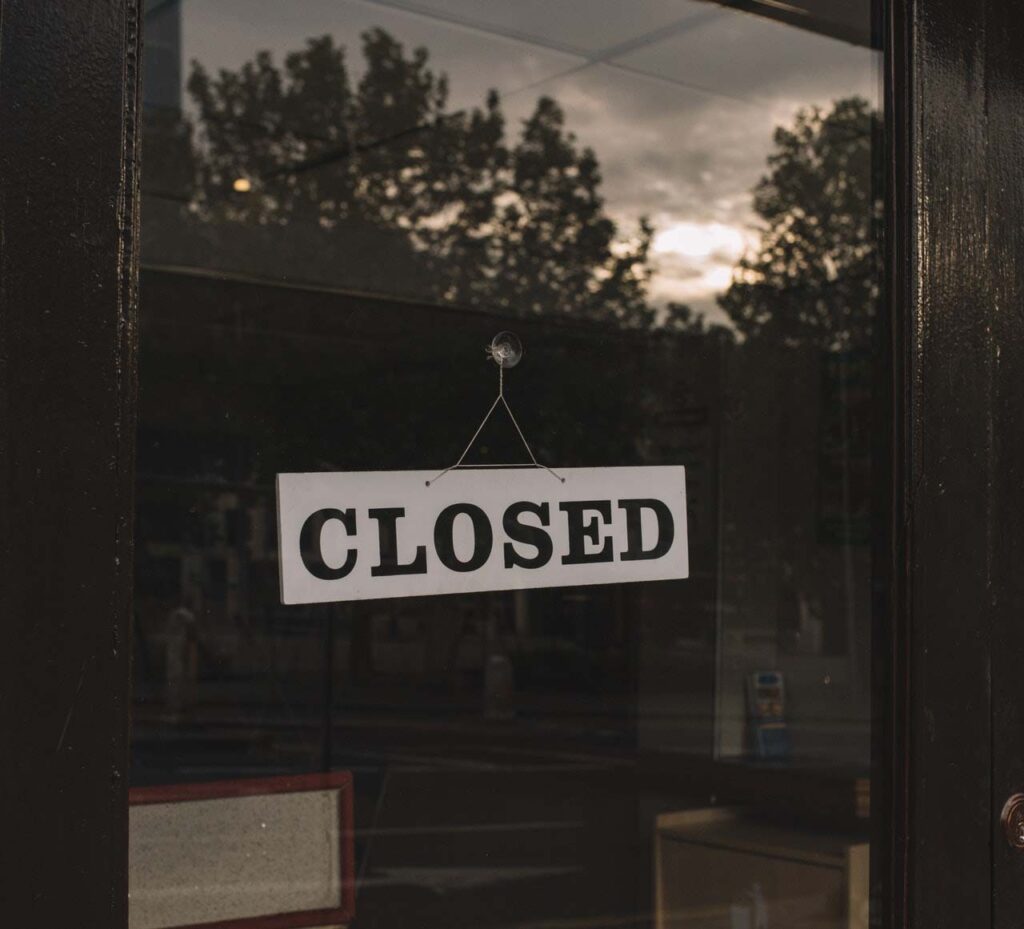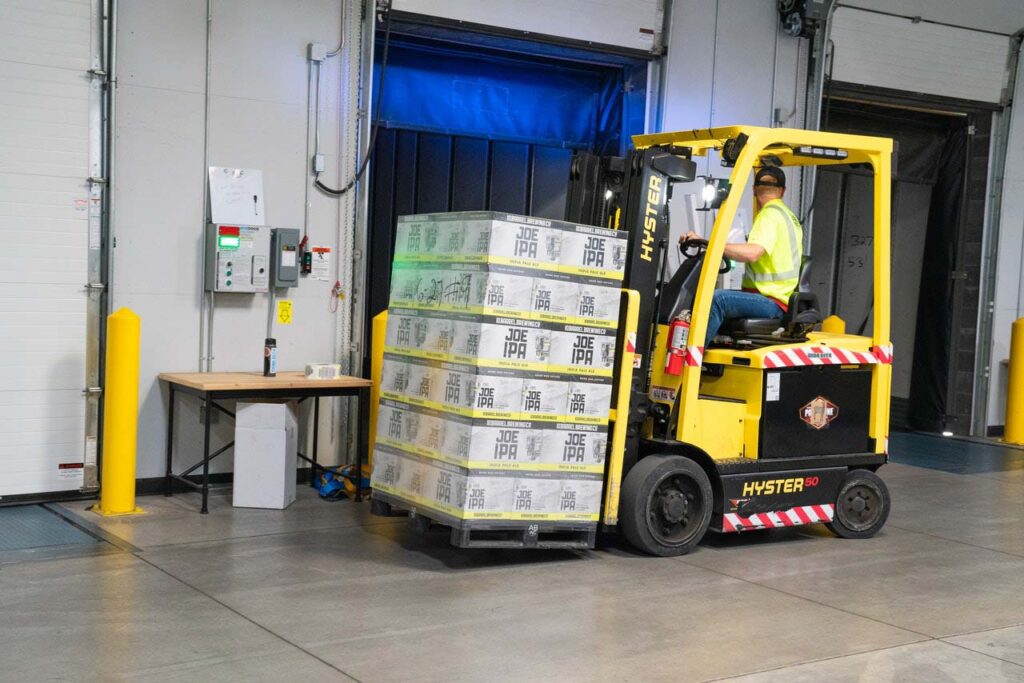Running a business is hard, and failure is common. But why businesses fail? Can this be prevented? How can this apply to your business? In this article, we will discuss these topics and try to give you some actionable content to work on.
Now, the Internet is full of blog posts trying to answer the question “why do businesses fail?”. Yet, most of those, list a bunch of unmotivated opinions. You will find things “14 proven reasons why businesses fail”, but proved by who exactly? How was this proven? Or, even better, the “top 10 reasons small businesses fail”. Why top? There were other reasons but were not significant enough to be included in the article? Why?
Don’t get me wrong – those articles provide useful information. But, to me at least, it remains just that. Not something you can act upon. It’s hard to apply what you read in such posts, because it’s not obvious how a situation applies (or not) to your business. This article is different. It tells you why businesses fail, and how to spot early signs of failure in your business.
Instead of just listing a bunch of things, we will structure this article on areas of business, and list problems in the order you are likely to encounter. You can think of this article as a blueprint, or even a map to navigate a dangerous sea full of opportunities to fail.
Understanding the Hurdles of Business
Before we can answer why businesses fail, it is important to create some context. In fact, “doing business” is not an easy feat, but instead it is full of challenges coming at you from all directions. Understanding those will give you a better perspective.
What is Failure?
If we talk about why businesses fail, we need to define what we mean by failure. This is not obvious. It may mean bankruptcy, but it may also mean not reaching the objectives you had for your business.

Either definition is fine and can apply to this article. However, we focus more on the financial side which is easier and objective to measure.
Working End-to-End
For several years, I worked as a Project Manager for the IT department of a manufacturing company that produces cables. I led many different initiatives with success and implemented new technologies. I was free to do all this and always got paid on time. But the truth is, the company could not survive by my work alone.
If I could do my job and get paid, it was because someone else designed the cables the company was selling. A lot of people worked to produce such cables, more people educated the market about them, and yet other managed to sell them. With the money coming from that, the company could do many initiatives, among which pay me to do IT stuff.
The point here is simple. When you work for a company, you can focus on your specialty and be the best at that. When you run a business, you lose this privilege. You need to take care of the whole process: create something people want to buy, sell it, and deliver it. This is true whether you are a small start-up or a large company. Even in large enterprises, like the manufacturing company I worked for, there is always someone that maintains end-to-end visibility on the full process. That is typically the CEO.
There are three main areas where you can encounter problems. Where you will encounter problems.
- Difficulty to envision products or services that people want to buy (product-market fit)
- Inability to articulate the value of your offer, present it to customers and sell it (marketing and sales)
- Challenges in delivering what you promised (operations)
With all these difficulties, we may be tempted to assume that the answer to why businesses fail is simply “because the owner/CEO is not good enough”. That can be a reason, but most often it is not the case.
The Uncertainty of the Market
According to the Bureau of Labor Statistics, 65% of businesses in the US fail within the first 10 years. This considers all businesses, most of which may have been started by unexperienced business owners. Even with this impressive statistic, it may seem reasonable to assume that a business founded by an experienced professional will work fine. Wrong.
Let this sink in: having business knowledge is not enough to prevent the failure of your business. Here you can find a list of 224 start-ups that failed by CBInsights Research, all founded by people with previous experience and that have attracted millions of dollars in capital.
From what you see there, it is not just about the founding team. Investors pour money into such companies, only to see them wiped out. It’s not like investors are fools, or the founders are incompetent. Most often, founders are competent, the business plan is solid, and the market is promising. And yet, failure seems unescapable.

The truth is, if we ware to answer “why businesses fail?” in a single sentence, it would be that is because you cannot predict the future. You will never know with certainty what will happen in ten years, or even next year or tomorrow. Imagine you founded a wonderful travel agency in January 2020 only to realize in March that a global pandemic means you are probably not getting any customer for some time to come.
The market – what people want and are willing to pay for – changes over time. So, your business must be able to adapt. This is easier said than done because adapting is a vague term. It may mean scrapping a product in favour of another, change marketing strategy, controlling costs, and many more things. It means find a way to understand what people want and give it to them.
The problem here is that there is no manual. You cannot predict the future, and you cannot know in advance what people will want. Sure, you can do market research, focus groups, whatever, but you are only making a probabilistic guess. You will never know with 100% certainty. So, there is room for doubt, and there is also room for failure in this.
Why Businesses Fail?
1. Poor Product-Market Fit
The product-market fit is the link between what you sell and what the market wants. Of course, you want a tight link: you sell what people want. In the list of reasons why businesses fail, we are putting this first because it is the first you encounter. If nobody wants what you sell, you can be even unable to produce it, but it won’t matter because nobody will ask you to produce it. That will come later.
This makes intuitive sense: of course, if I make something people don’t want, I am doomed for failure. How can I know this in advance? How can I know if this applies to my business? In short, you cannot, but there are other measures you can put in place to prevent your own failure.
First, you should start a business if you have a deep understanding of the market. If you have been a professional working in the industry for 2 decades, maybe you know a thing or two about what the industry wants. Plus, you are likely to have a network of contacts that you can consult to see if you are moving in the right direction. However, as documented in the book Built to Last (Collins, Porras), this is not necessarily a requirement. You don’t have to start a business with a clear idea of what product to produce, not necessarily at least.

Yet, a 20-years-experience is something you either have or not. If you don’t, there is no way to make it up unless you are willing to wait 20 more years to start your business. Plus, it always remains something empirical.
A much better approach to avoid failing on the product-market fit is to run many iterations and have resiliency. In other words, try to launch a product as small as possible (see Minimum Viable Product) so that even if it fails you still have resources to tweak it, or discard it and create a new one. Especially early in the business, bet-the-ranch initiative are almost a guaranteed path to failure.
In short, why businesses fail? Because they are making something people don’t want to buy. Try to develop your product as fast as possible, with as little feature as possible, so that you can immediately test it and change it if you see it is not working as expected.
2. Struggles in Marketing and Sales
This is probably the trickiest part to figure out, and most businesses fail here. In fact, I would say – although there is no research to back this up for small businesses – this is the reason why businesses fail more frequently. The logic behind this is simple: there are tons of businesses that do not bring new products to the market: restaurants, repair workshops, supermarkets, accountants. Yet, some fail, others do not. Those who failed offered the same product their thriving counterpart did, so why did they fail? We can rule out a product-market fit, but what is the reason?
The combination of marketing and sales is about placing the product to customers in a way that they are aware of it, want to buy, and have the actual opportunity to buy it. This means taking care of informing and educating the customer, deciding the price, selecting communication channels, and answering customer questions.
Just like product-market fit, there is no manual on how to do marketing and sales right. Yet, going with trial-and-error works well here. Especially considering the opportunity that digital marketing channels are offering to us, you can experiment with different marketing messages or even different prices with small audiences and see what works best.

Often, experimenting with marketing and sales is done in conjunction with product-market fit. This is because it can be hard to understand if the problem comes from poor product-market fir or from bad marketing. It follows that you can tweak them together, leveraging the seamless ability to test and change your marketing message online.
A good strategy here can be a smoke test, where you try to sell something you actually don’t have. This is often done with a landing page to join a waitlist for a product in development. In this way, you can see how much people are interested in a product you are consider developing, before you even start developing.
To summarize this chapter: why businesses fail? Because they struggle to put their product to market in a way that resonates with customers.
3. Inefficient Operations
Okay, imagine you nailed product-market fit and after some trial found an effective way to communicate your product to customers. Why businesses fail then? At this point, it is a problem of delivering what is promised.
Now, operations are a large topic because it identifies all the daily activity a business does to make and sell its product, including auxiliary activities (e.g., cleaning the restrooms at the end of the day). If you are in a hurry, you can read this section about why businesses fail here, but I encourage you to continue to the next chapter to find the various branches of operations where you are likely to encounter problems.

At an operational level, you may struggle in the following areas:
- Financial mismanagement – ensuring the company has enough money
- Quality – delivering the product customers expect
- Supply chain – being able to deliver the product altogether
- Human resources – having the right talent
There might be more areas, or more variants and nuances to those areas, but we can easily group the problems into these four categories. Inefficiencies in those areas means that the company is unable to deliver what promised, in the ways and timelines promised. In other words, you are letting your customers down. That is a big reason why businesses fail.
Read the following bonus drill-down to learn why businesses fail when their operations are inefficient.
Why Businesses Fail When Operations Are Inefficient?
Failures for Financial Struggles
Of course, failing means not making money – and to reach this point you will need to encounter financial struggles. However, having issues with money, and especially cash flows, is a big reason companies fail.
In this area, the most critical reason why businesses fail is cash flows. I say critical because it is the kind of bittersweet failure “If I only did X, if this payment could only wait another X days…”. It leaves you with that feeling you were just about to turn the corner, and you failed right there. Cash flows are the money coming into the company account and going out of it. Long story short, you need to have enough money coming in to cover money going out.
This may seem simple at first, but it is not. Often, customers commit to payments or make orders, then you have to deliver the service and finally cash in the full amount. This means you incur in costs before you generate revenue, so you put pressure on your reserve of cash. If you run out of cash, you can’t pay your costs, and go under.
For most businesses, especially small ones, this is the only financial struggle you need to be aware of. It is the most important. Yet, there are more.

If we need to discuss why businesses fail with a larger perspective, we can consider a lack of equity, especially compared to debt. Equity is the money put into the business by the owners, and debt is the money you own to the bank. Businesses use both to make a cash reserve and avoid running out of cash (see the problem with cash flows we just talked about). Yet, if you have too much debt compared to equity, you will have monthly payments to make and little room for error. Instead of easing your cash flow crunch, you are making it worse.
Along those lines, large businesses may fail because the failed to complete big investments or remain in the market long enough. This is true for start-ups growing bigger and bigger. Such companies require massive investments and may take years to turn a profit. It should never be taken for granted that investors will keep pouring and pouring money into them until they see a profit. At some point, they may just lose interest.
This would translate in the company being unable to complete such investments, typically to build economies of scale, then it won’t be able to turn the expected profits because it lacks such economies of scale, and ultimately fail.
If this sounds abstract, think about Uber, Lime or all those smart mobility app. They go in a city and have to buy all the scooters and bikes before turning a profit. If they want to do in many cities at a time, that’s a big investment, before cashing in a single penny. Yet, if they don’t do it, they fail to achieve the economies of scale. If you have only one scooter in a city, you won’t bother to download the app – you download the app because there are enough scooters to make it convenient to use them.
Failures for (Lack of) Quality
This is probably the most intuitive reason why businesses fail. Lack of quality. This does not mean making “bad” products, not necessarily at least. It means failing to meet customers’ expectations.
Here, we should distinguish quality and grade. Quality defines how much a product is realized according to its specifications. Grade can be “how premium” the product is. For example, think about cars and compare a small Ford with a large Mercedes. Of course, the Mercedes is of higher grade, but not necessarily of higher quality. The two cars have different purpose and cater to different segments of the market, and the Ford is designed to follow different specifications.

Bad quality in a car would be that you are unable to turn the engine on, that the air conditioning does not work, stop lights work intermittently – things like that. Not that it does not have premium leather seats, unless that was part of the specification.
In any case, when you set some expectations, you have to deliver. Sometimes this is easy, sometimes it is not. You need to put in place mechanisms to ensure the products and services you are producing really meet the expectations, and clarify those expectations if you are unsure. Lack of quality is an easy way to erode trust in the brand.
Supply Chain Issues
Supply chain mean ensuring the business has the resources it needs when and where it needs them. If you sell a product in brick-and-mortar stores, you want to be sure the product is on the shelves when customers go looking for it. If you produce a car, you want to ensure you have tires in the warehouse when it is time to install them.

Unfortunately, getting what you need when you needed it and in the amount you need it is not always easy, and this is why businesses fail. Here, you can have two main problems:
- You don’t get enough of the materials you need so you have to stop or pause production, or forego some sales
- You err on the other side, and stock too many items, more than you actually need. In the best case, you have them sit and do nothing, in the worst case you are unable to sell them and have to throw them away
The bigger the business, the more likely you are to have both problems in different parts of your supply chain network.
Human Resources Issues
Finally, if you don’t have the right talent you will fail. Plain and simple. You need the proper people in the proper roles to fulfil the organization’s objectives. This means recruiting and retaining talented individuals and defining the proper roles and management structure in the organization.
Now, “talented” is a subjective word. What we mean here is right for your business. You are the only one to know who are the people right for your business. If you struggle to get such talent, it may be because you don’t have a well-defined or ideal culture. Culture defines the norms and accepted behaviours in the company, it is “how we do things around here”. If your culture is clear, you can attract and retain people who share the same culture and that already have inside them the values behind such culture.

What HR specialists call “cultural fit” is important. It is probably the most important factor, but not the only one. Consider that you also must attract people with the proper had skills. For example, if you run a software company, you will need some software developers. You can find the best culturally fit pastry chef in the world, but she probably won’t make the cut here.
Having talented people is not enough. You will also need to define the proper roles. In fact, the organizational structure or hierarchy is the way you split and group responsibilities so that each role can be performed in the most effective way. Just like with other areas why businesses fail, you can do some trial and error here and there is no right formula. However, changing the roles and responsibilities of individuals frequently can really sap down morale quickly. Do this with caution.
Why Businesses Fail, in Summary?
In short, businesses fail because they cannot deliver. They cannot deliver what the customer really wants (product-market fit), they cannot get it to the customer (marketing and sales), or they just can’t deliver it in the way they promised (inefficient operations).
Running a business is simple, but it is not easy. It is hard, requires patience and strong nerves, and skills. You can build those skills here for free. For example, this MBA-level guide can help you evaluate investments and avoid your financial struggles.